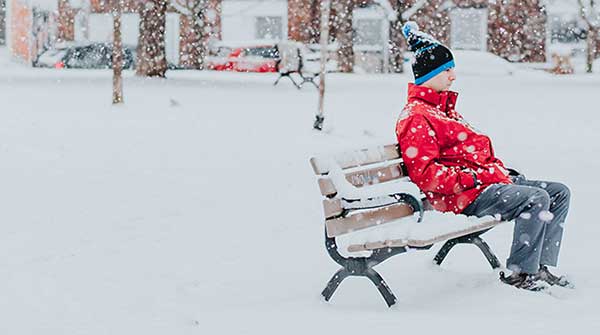 Dread isn’t too strong a word to describe the feelings many have about the winter about to start. The COVID-19 virus is reason enough to worry.
Dread isn’t too strong a word to describe the feelings many have about the winter about to start. The COVID-19 virus is reason enough to worry.
There’s not much individuals can do about that except follow all the good advice about staying safe.
However, there are two other major depressing impacts of COVID-19 that we can deal with.
One is the effect that all the uncertainty and ever-changing limitations and restrictions have on our mental health.
The other, with a slightly longer view, is the harm the pandemic has done to the economy. Some say it may take until 2025 to get the economy back to where it was at the start of 2020.
Worrying about hanging on to your sanity and about your longer-term ability to hold a job or make a living can really leave you in the dumps. But we can do something about both these challenges.
How do we avoid slipping into a deep, dysfunctional depression when we have several very good reasons to be depressed?
Since a major symptom of depression is curling up, shutting down and doing nothing, most professionals agree that the antidote is to push yourself to stay as active as possible in as many dimensions as possible.
Keep up social contacts and make sure to talk to at least one other person every day, even if it’s electronically. This is especially important if you’re isolating at home alone.
Stay physically active. Go out for a walk or a run and/or work out at home using the myriad of videos available on the internet on every kind of exercise.
Since our brains and our psyches need exercise as much as our bodies, find something meaningful to do.
This is a challenge since our social life, parties and celebrations, and even face-to-face volunteer work have been curtailed.
Paid work, if we’re lucky enough to still have it, is either at home or limited and socially distanced. If you do have a job, you’re worried about whether it will last. If you don’t have a job, you hear so much about how the world of work is changing that you wonder if you will be able to get one, now or when the pandemic is over.
But we can keep ourselves mentally well, improve our financial prospects and help the economy recover. Take advantage of all the unexpected free time you have while stuck at home to add to your own human capital: your skill set.
Even with unemployment rates coming off 50-year highs, our economy is being hampered by shortages of qualified workers in certain areas. That includes technicians and technologists. (I’m on the governing council of the Applied Science Technologists & Technicians of British Columbia.)
Basic things like being able to quickly process COVID-19 test results have been hampered by the lack of qualified technicians. This is just one example.
Your first step to better mental health and a better financial future is to check out major employers, job sites, etc. on the internet and find out what skills are likely to be in demand.
Just about every kind of education and training is now offered electronically. So you can find everything from videos to full university courses to not only give you new skills, but also a good reason to get up in the morning and do something positive.
Even if you already have a job, you can use your shut-in time to add to your job security by building up skills you haven’t been needed in the past but will become essential as we move past the pandemic.
If you’re a teacher, for example, and you can demonstrate you know how to teach virtually, your future will be much more secure than those who simply worry and wait for the pre-pandemic world to reappear.
This winter may not be as much fun as we would like, but we can take advantage of its circumstances to survive it and prepare for a better future.
Troy Media columnist Roslyn Kunin is a consulting economist and speaker.
For interview requests, click here. You must be a Troy Media Marketplace media subscriber to access our Sourcebook.
The views, opinions and positions expressed by columnists and contributors are the author’s alone. They do not inherently or expressly reflect the views, opinions and/or positions of our publication.


